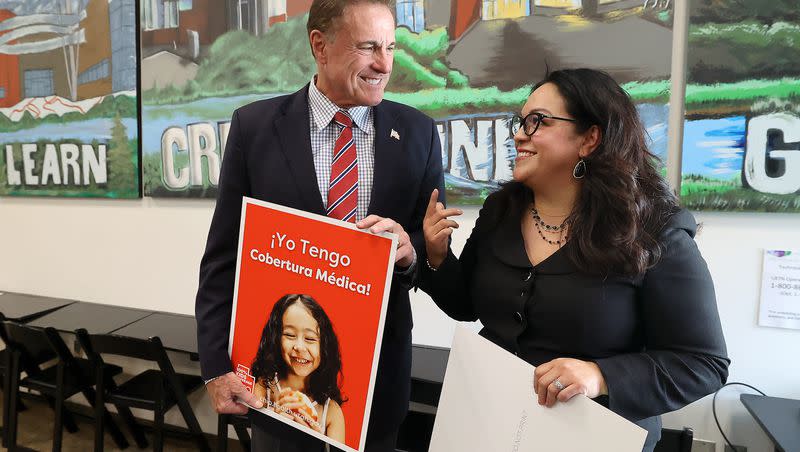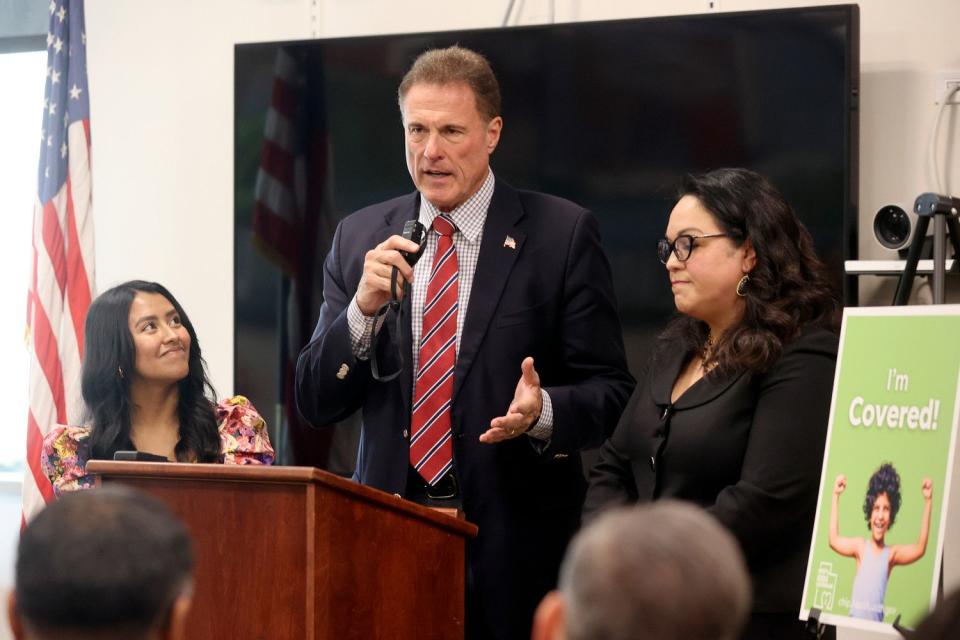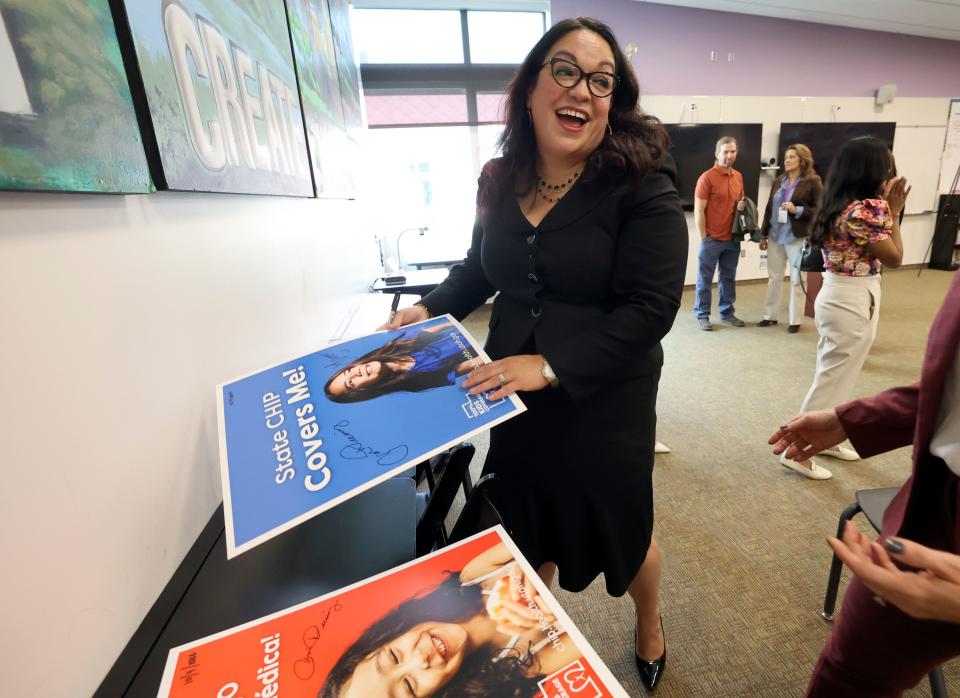Utahns celebrate bipartisan bill allowing immigrant children to be eligible for health benefits

Community members gathered on Wednesday in the Glendale Community Learning Center to celebrate a bill that will allow children of immigrants to be eligible for CHIP, or the State Children's Health Insurance Program, in Utah beginning in 2024.
Senate Minority Leader Luz Escamilla, D-Salt Lake City, said it took her five years, and some faith and prayer, to get the bill through the Legislature.
After it failed one year, Escamilla said a mom who had a 6-year-old daughter with cancer thanked her for running the bill and trying to provide insurance for people in that situation. She said she told that mother she would continue to try, and now this bill will change that girl's life — and many others.
Escamilla said to get SB217 through, she had to teach a lot of her colleagues about the issues that led her to run the bill and learned a lot about the issues legislators asked her about in turn.
"I wouldn't be here having this celebratory meeting if it wasn't for my sponsor in the House," she said.
Rep. Jim Dunnigan, R-Taylorsville, the House sponsor, said he was approached by Escamilla after the bill didn't pass and was surprised at how willing she was to work with his suggestions on the bill. He joked about telling her to push back more or he would have to support the bill before he ended up sponsoring it.
Dunnigan listed a few things that helped Republicans in the Legislature support the bill, including that children have to be Utah residents for six months before receiving benefits, there is a cap to the amount of money that can go toward the program, and there is a requirement that the families need unsubsidized employment to be eligible.
He also said that including the aid within CHIP, using a system that is already in place, made the bill simpler.
Escamilla said in Utah, the minority party has a very high success rate in passing bills compared to other states, and she is grateful that the state can build good public policy.
She said the ability to have this program in place for families was a dream for her.
"I just want to say thank you, Rep. Dunnigan, I know a lot of kids are going to have a better life," she said.
Dunnigan said Escamilla is "a warrior."
"She's tough. She beat me up — I just want you to know that — and she educated me," he said.

He said Escamilla explained to him that children are going without care, or going to the emergency room because it's the place they can get care. Dunnigan said that is not the best way to provide primary care or preventative care.
"Ultimately, she convinced me it was about the kids. That's really what it is about, 'her kiddos' as she calls them," he said.
Both legislators said they are proud of the legislation, and they asked community members in the audience to educate families about it and let them know that it is not a program they need to worry about.
Jennifer Strohecker, Medicaid director with the Utah Department of Health and Human Services, said this program brings the state one step closer to the goal that all Utahns have "fair and equitable opportunities to live safe and healthy lives."
She said children do better when they have health care; they are stronger, they learn better and they are more able to contribute — and she said children with insurance receive better health care than those without. Strohecker also said parents of children with insurance need to take less time off work to care for their children.
Strohecker said the CHIP program in Utah has insured 280,000 children in the last 25 years. Through this program, she estimated it could help 2,000 more.
"CHIP is a program that does work, it has been a proven and smart investment in Utah's future," she said.
Strohecker said children who are brought to Utah for refuge will now have the same protection, and their parents will not have to choose between a doctor's visit and buying groceries.
"Citizenship will no longer be a barrier for non-U.S. citizen children who are living in our state. They can access quality, affordable and comprehensive health care," she said.
Carlos Flores, health outreach program manager with Holy Cross Ministries, said financial burdens on families are lessened when children have access to health insurance. He said he has been happy to tell immigrant mothers now that there are health insurance options for their children.
"I can tell you these families are pleasantly shocked when they hear the news. You see that moms with a big smile on their face they can't believe that this has happened," he said.
Flores said they have a list of families who are ready to sign up.


